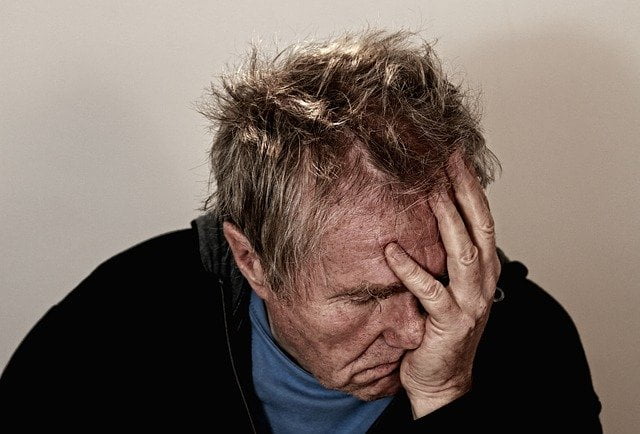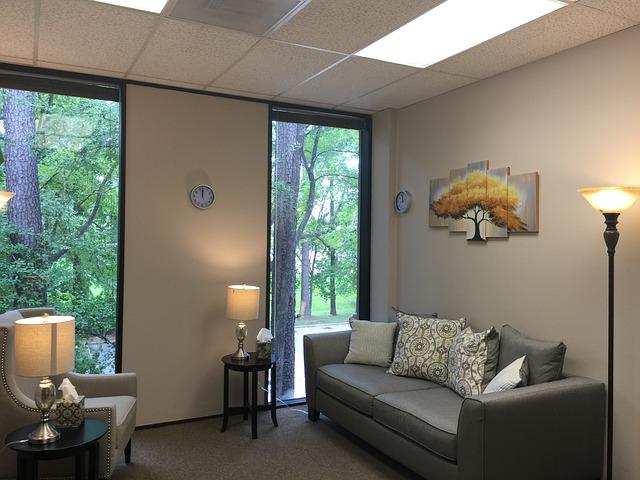- Home
- Alcohol Rehab – Residential/Inpatient Treatment for Alcoholism
- Private Alcohol Rehab
Private Alcohol Rehab
Alcohol use disorder, also known as alcohol addiction and alcoholism, is rife in the UK.
In 2020/21, there were 167,000 prescriptions dispensed to treat alcohol dependency in England.
With its legality, it’s an addiction that can remain hidden for a long time.
Our culture is also one that encourages drinking socially and as a way to end a “hard day at work”.
This substance negatively affects people from every background.
To break free from the grip of this sinister addiction, rehab is often essential.
How Addiction To Alcohol Forms

There are both psychological and physical aspects of alcohol addiction.
Some people might use alcohol in a problematic way, but not be physically dependent.
This might be seen in a person who uses alcohol regularly to soothe uncomfortable emotional reactions.
The person might experience mood swings as the alcohol leaves their body and look forward to their next drink.
Dependency
A physical dependency is where a person has come to need alcohol in order for the body to function as “normal”.
When a person drinks alcohol every day, the brain’s production of GABA (an amino acid that impacts the central nervous system) is reduced.
During withdrawal, this imbalance becomes apparent and creates dangerous side effects.
This is evident when people experience delirium tremens where hallucinations and seizures can occur.
In these cases, it is dangerous for people to go “cold turkey” so a medically assisted detox will be essential.
Background Factors That Make Alcoholism More Likely To Develop

There are usually a variety of influences that cause people to develop an addiction.
In fact, for those who develop addictions, there are usually common factors in their background.
- Some personalities are more susceptible. Many people with addictions tend to have low self-esteem or are “sensation seeking” types.
- A family history of addiction can make it more likely to occur.
- The experience of traumatic events increases risk.
- There is a link between mental health issues and addiction, as people drink to ease symptoms of mental health, and also people who drink a lot can develop mental health conditions due to alcohol abuse.
- Spending time with people who drink a lot and who put pressure on you to drink too.
Do You Need Rehabilitation Support?

The DSM-5 is what professionals the world over use to support them to make mental health diagnoses.
In relation to alcoholism, it links alcohol abuse and alcohol dependence as one disorder known as, alcohol use disorder.
Within this category, there are three levels of severity; mild, moderate and severe.
The DSM-5 has a list of symptoms of alcohol misuse -the more symptoms a person has, the more severe their addiction to alcohol is.
Some of the symptoms on the DSM-5 scale that suggest you need support include:
- Wanting and trying to stop drinking, but not being able to.
- Spending a lot of time drinking and/or recovering from its effects.
- Obsessive thinking about alcohol.
- Mainly participating in drink-related activities.
- Drinking despite it causing issues with people who love you.
- Drinking despite it causing health problems.
- Experiencing withdrawal symptoms when you stop drinking.
Any of these symptoms suggest you need rehabilitation support.
You can call Rehab Recovery for more guidance on your local treatment options.
Private Or NHS Treatment Services?

Throughout the UK, there are both private and NHS-funded rehabilitation options to help you quit drinking.
Private
Private options are funded by the individual (or their health insurance providers) and offer an all-encompassing approach to recovery.
People enter rehab as a resident and stay for a period of time in order to receive 24-hour care.
This supports them safely through detox and equips them with all types of techniques to manage cravings and maintain sobriety.
Therapies, both individual and group, play a huge role in the daily timetable.
NHS
NHS services are available in most local towns.
They serve the community, so anyone with a drug or alcohol problem can be supported at these clinics.
Staff might offer some limited one-to-one conversation-based support.
There are also weekly support groups on offer.
Symptoms Of Alcohol Addiction

The recommended weekly allowance of alcohol in the UK is 14 units spread across 3 sittings.
This translates to roughly 6 medium glasses of wine or 6 pints of 4% beer, around 14 units.
If you regularly exceed this limit, it’s highly likely you have a problematic drink issue.
If you experience any of the following symptoms of alcohol addiction in your daily life, it’s important to access rehabilitation treatment.
- Violent outbursts
- Worsening mental health
- Deterioration of relationships
- Work-related problems
- Lying to get alcohol or cover up your drinking habit
- Experiencing withdrawal symptoms
Alcohol Dependence And Withdrawal

Where alcohol dependency has developed, withdrawal symptoms are predominantly physical.
These symptoms includes the following:
- Mood swings
- Sleep disruption and insomnia
- Fluctuations in appetite
- Nausea, sickness, and diarrhoea
- Shaking
- Sweating
- Hallucinations
- Seizures
The severity of symptoms is often one of the reasons that people find alcohol so hard to stop.
Of course, alcohol being legal and available in shops, restaurants, and even cafes can make this more difficult.
Then there are, of course, the underlying issues that caused the person to turn to alcohol in the first place.
The Benefits Of Private Alcohol Rehab

There are huge benefits of going to rehab, including those linked to health, family dynamics, your future, as well as how you feel within your own body and in life.
Recovery is complex.
This is why a private rehab is so useful; it offers a structure where every aspect of who you are is accounted for and addressed.
Benefits of going to rehab include:
- Giving the body a break from the strain of alcohol
- Kickstart sobriety
- Increasing the quality of life
- Develop skills to maintain sobriety
- Understanding where the addiction came from and developing new insight to forgive and change
- Immediate admission
- Stay for as many weeks as you need
- Higher chances of long-term abstinence
Health Risks From Long-Term Alcohol Addiction
- High blood pressure
- Heart disease
- Stroke
- Lower immune response
- Increased risk of liver disease and other illnesses linked to other organs
- Increased risk of cancer (breast, mouth, throat, oesophagus, voice box, liver, colon, and rectum)
- Learning and memory problems
- Mental health problems
How To Support A Loved One Who Has Alcohol Use Disorder

If you’re concerned someone you love has an alcohol problem, you will need to look after yourself while understanding certain things to try and keep a healthy relationship with them.
It’s important you set boundaries – This is especially the case around money. When people have addictions, they’ll do whatever they can to get the substance.
It isn’t personal – It’s nothing about you, even though it might feel personal if it leads to them lying or manipulating you.
You’ll want to learn more about the nature of addiction – Understanding it helps you to build a healthy dynamic with your loved one in terms of supporting them.
For many years, people might deny an addiction – Even at this point, you can help them by supporting them to eat well or to take part in healthy activities where no alcohol is present.
Find out about local treatment services – When your loved one is sober and ready to talk about this, you know how to have a healthy discussion with them.
If necessary, hold an intervention – This is where you have a professional come with you to broach the subject of your loved one’s addiction as well as what steps can be taken next to support everyone affected.
Free Alcohol Use Assessment

If you’re unsure whether you meet the threshold for rehabilitation treatment for alcohol use, you can contact Rehab Recovery.
A phone call with one of our friendly advisors will help clarify if you have an addiction, its severity, what treatment options are most suitable and which are near you.
Our team can also support you through every step leading up to rehab admission.
Private Rehab Treatment For Alcohol Use Disorder

When you enter a private rehab for alcohol use, there are a number of things that happen.
Firstly, it’s important to know that it’s likely you’ll require a 28 day stay.
This is the optimum amount of time to enable you to detox safely as well as to start and regularly practise new techniques to manage cravings.
The Detox

When you enter rehab, if you have a dependency on alcohol, you’ll immediately begin with a medically assisted detox.
This means you’ll have a prescription for a medication such as Librium.
This is to ease the distressing symptoms of withdrawal, keeping you safe and healthy throughout the process.
Mental And Emotional Support

You’ll also take part in evidence-based individual therapies, such as Cognitive Behavioural Therapy and Dialectical Behavioural Therapy.
These are psychotherapies which have proven to successfully treat people with addictions to achieve and maintain sobriety.
They help you get in control of your thoughts and emotional responses to promote healthier habits.
Group therapies make up a huge part of your stay at rehab.
This might be through a group discussion about your experiences with addictions, it could be yoga session to help you connect to your body physically, or it might be in 12 Step sessions to socially connect you to others.
The Alcoholics Anonymous Approach

Alcoholics Anonymous is the fellowship that created the 12 Step approach.
This organisation supports millions to achieve and maintain sobriety throughout the world.
It’s often used in private clinics because it empowers the patient to freely admit that they have an addiction and to start moving through the various steps that lead them to sobriety.
The 12 Steps supports people to forgive themselves for actions, to forgive others, and to ask for forgiveness.
It places emphasis on social connection and developing compassion so that one can go on and support others.
It’s an approach which brings purpose to life.
Becoming used to the 12 Step approach at rehab can support you to feel braver to access 12 Step groups after leaving rehab.
This offers a place of recovery support into your future.
Therapeutic Approaches

It’s really important you participate openly and honestly during the psychotherapies you experience at rehab.
This is where a deep understanding of your addiction can develop.
You’ll learn its roots, how you became addicted and why, and what it is specifically that can help you to remain sober long-term.
Many realisations are made in during therapy and a therapist is equipped to offer you a space of safety, learning, emotional release, and the hope that things can be different.
Aftercare

Aftercare is an important part of recovery.
When you leave rehab, you’ll have support in place to help you remain sober.
This might include ongoing counselling sessions or links to 12 Step groups.
As well as this you’ll also have a relapse prevention plan in place.
This will be instrumental in helping you through tough moments where you crave, or potentially relapse.
A Personalised Treatment Programme

When you go to private alcohol rehab, you’ll be assessed by a psychiatrist.
This is so they can understand the severity of your addiction, what drives it, and what treatments will be most suitable.
A personalised treatment programme will be offered based on your needs.
Yes, it will include the essentials, such as cognitive behavioural therapy and 12 Step sessions, but it also might include family or couple’s therapy, as well as holistic therapies.
How Much Does It Cost To Go To Alcohol Rehab?

To go to alcohol rehab, prices start at around £1500-£2000 for a week.
Some people might stay for an alcohol detox only, which lasts 7-10 days.
This might be for a person who has already completed a 28-day stay but who has relapsed.
As mentioned earlier, it’s much more beneficial to stay at rehab for at least 28 days.
Outpatient Services At Private Rehabilitation Clinics

Some people might not have the opportunity to stay in rehab at all.
This might be the case if you have children or caring responsibilities.
If you live in the locality of a private clinic it’s possible to become an outpatient.
In this instance, you’d remain living at home but go to clinic for treatments and therapy.
This would be discussed with staff.
If you work, it might be advised that you reduce your hours, or take some time off if this is possible.
Contact Rehab Recovery For More Information

Alcoholism is rife in the UK.
It’s especially difficult to quit with how socially accepted it is and the serious withdrawal symptoms it causes.
Entering a private alcohol rehab offers the most efficient way to become sober.
It’s the safest way because the detox is overseen by professionals who can manage physical symptoms and guide you psychologically.
After detox, alcohol rehab focuses on the causes of your drink disorder and how to manage cravings in a positive way.
If you’re keen to stop drinking, call the Rehab Recovery team today.
We’re here for you every step of the way.


